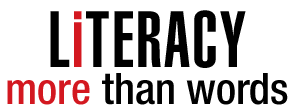School-Age Literacy
Provinces and territories are working together and within their own jurisdictions to improve the literacy levels of students in elementary and high-school systems.
The following presentations highlight a variety of literacy-focused programs and practices for school-age students across Canada.
To learn more, browse the presentations below.
-
 Results without Rancour or Ranking: Ontario’s Improvement Strategy — Dr. Avis Glaze
Results without Rancour or Ranking: Ontario’s Improvement Strategy — Dr. Avis Glaze
The province of Ontario has made the improvement of literacy and numeracy the centrepiece of its education mandate. Clear achievement targets have been established for elementary and secondary schools. Human, financial, and material supports have been augmented to further the initiatives. In this presentation, Dr. Glaze outlines the key strategies used to improve schools across Ontario. The focus has been on engaging teachers and principals and building capacity at all levels of the system.
Webcast -
 School-Age Literacy — Jim Gibbons
School-Age Literacy — Jim Gibbons
Representing the Canadian Association of School Administrators, Jim addresses the question: What is your vision of improving literacy? The presentation looks at three steps to improving lifelong literacy: being ready to learn; achieving the foundations of learning; and continuing on the path to lifelong learning from middle school through high school.
Webcast -
 Making a Positive Impact on Literacy Levels: Middle and Secondary Years — Michael O’Gorman, Susan Martin-O’Brien, Janice Porter, and Barry Wilson
Making a Positive Impact on Literacy Levels: Middle and Secondary Years — Michael O’Gorman, Susan Martin-O’Brien, Janice Porter, and Barry Wilson
This session features presentations on innovative literacy programs and initiatives from two jurisdictions, Ontario and Nova Scotia. The session, aimed at improving middle-school and high-school students’ reading levels, demonstrates how cross-curricular opportunities enhance literacy development, and the importance of measuring results.
Webcast: Introduction
Webcast: Michael O’Gorman
Webcast: Susan Martin-O’Brien
Webcast: Janice Porter
Webcast: Barry Wilson
Webcast: Q&A
Presentation (O’Gorman) (PDF)
Presentation (O’Brien, Porter and Wilson) (PDF) -
 A School’s Journey in Literacy Growth — Tiffany Bastin
A School’s Journey in Literacy Growth — Tiffany Bastin
This presentation looks at one school where educators worked as a team to achieve results, believing that all children can learn. Tiffany discusses how the team used data to motivate, inform instruction, and celebrate success.
Webcast
Presentation (PDF) -
 Reading Recovery — Janet Bright
Reading Recovery — Janet Bright
Reading Recovery is an early intervention program designed in New Zealand in the 1970s that is now implemented in Nova Scotia. This presentation discusses what the program is, why it is a provincial program, and whether it has been successful.
Webcast
Presentation (PDF) -
 English Language Arts (Primary/Elementary) — Scott Linehan
English Language Arts (Primary/Elementary) — Scott Linehan
Scott is the coordinator of Newfoundland and Labrador’s provincial assessments in language arts and literacy. This presentation looks at the provincial picture in NL, focusing on using data to evaluate success and to develop literacy strategies and programs.
Webcast
Presentation (PDF) -
 Multiple Literacies from 21st Century Learners’ Perspectives — Cheryl Prokopanko with a panel of Manitoba students
Multiple Literacies from 21st Century Learners’ Perspectives — Cheryl Prokopanko with a panel of Manitoba students
This session features students from today’s classrooms, who live in a world of 24/7 portable and personal communication and access to information. How has access to new communication and collaboration tools — such as blogs, wikis, texting, YouTube, and podcasting — changed the meaning of literacy? A youth panel discusses how they have developed their own literacy, with technology to enhance their critical and creative thinking, ethically and responsibly.
Webcast -
 Making Education Work in Manitoba High Schools — Betty-Ann McIvor
Making Education Work in Manitoba High Schools — Betty-Ann McIvor
Six Manitoban Aboriginal communities and their local high schools have partnered with the provincial and federal governments to create a project that aims to increase the rates of high- school completion and postsecondary enrolment among Aboriginal students. This session provides an overview of the Making it Work project and shows how it has strengthened student retention and performance. Program models and concepts are presented, based on the “Medicine Wheel” teachings.
Webcast -
 Teacher Development in Ontario: A Framework of Supports — Nicole de Korte and Armand Gagné
Teacher Development in Ontario: A Framework of Supports — Nicole de Korte and Armand Gagné
The presenters review Ontario’s Building Futures program, the New Teacher Induction program, and the Teacher Learning and Leadership program, which build on teachers’ strengths to enhance the educational experiences of students. The programs support the literacy objectives of the ministry by enhancing the capacity of teachers, who are key figures in delivering the programs.
Webcast -
 Improving Achievement for Students with Special Education Needs — Michell Forge, John Fauteux, Erica van Roosemalen, and Ruth Swan
Improving Achievement for Students with Special Education Needs — Michell Forge, John Fauteux, Erica van Roosemalen, and Ruth Swan
The Council of Ontario Directors of Education, in partnership with the Ontario Ministry of Education and all Ontario district school boards, has undertaken a large-scale project designed to build capacity for the effective instruction of students with special education needs. Explore the components of the project, the lessons learned, the research base, and the impact of the project on staff and student learning.
Webcast -
 Students Speak — Kirsten Parker, Students’ Panel, and Educators
Students Speak — Kirsten Parker, Students’ Panel, and Educators
Students are the immediate beneficiaries of the education system and of literacy learning. This session features a panel of students, who tell their stories with a focus on their challenges and successes. The role of literacy learning, and of factors that have hindered and advanced student progress, are addressed, along with a brief look at programs that have supported the re-engagement of student who have left school.
Webcast


